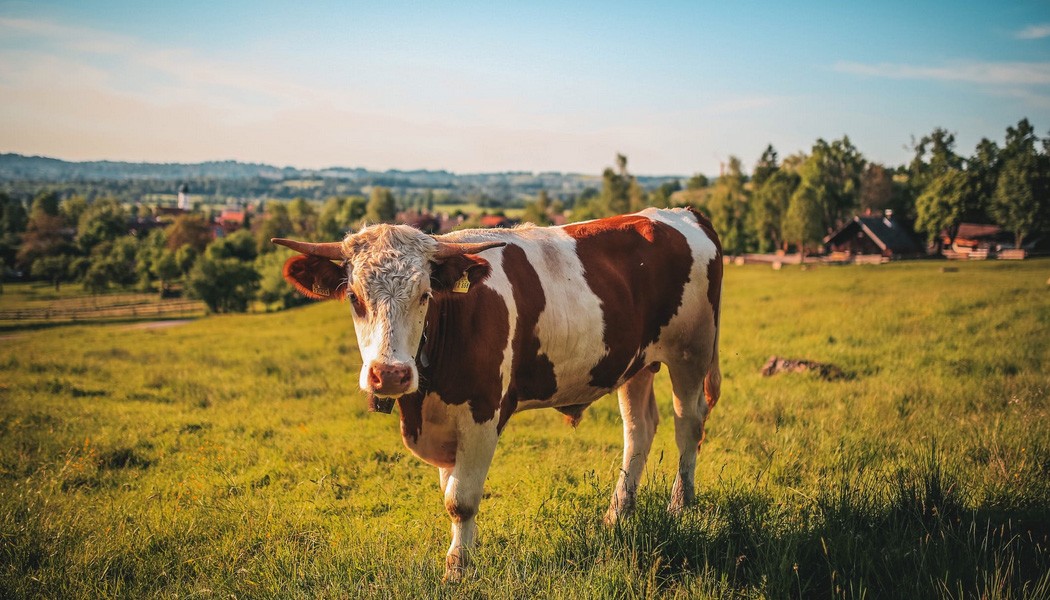Fat. That word automatically triggers all sorts of reactions, and most of them aren’t favorable…what we don’t want to be, look like, eat too much of, etc. Well, here’s the deal. Fat is good. Not just good, but essential. Despite a massive (and wildly misinformed) anti-fat campaign that was waged by top doctors and scientists for decades, we now know how important healthy animal fats are. That said, even these superstar lipids are not all created equal. It matters how your food is made and how your ingredients are produced. That’s why we here at Locavore Delivery are so committed to sourcing and delivering the best in Colorado pasture raised meat…we wouldn’t work so hard if it wasn’t that good for you. Let’s look at why.

You Are What You Eat (And What They Eat, Too…)
The best way to explain how the fat debate went off the rails (Margarine?! Really?!) is to look back at how animals would eat naturally, without any interference from us. Cows and goats ate grass, and pigs naturally foraged for roots, apples, acorns and bugs. Animals in the pasture are natural ruminants, which leads to happy animals with balanced diets, and all those nutrients are passed on to the consumer. Enter the surge in cardiovascular disease in the mid-20th century, which doctors rushed to combat with the demonization of cholesterols and saturated fats, urging people to substitute vegetable oil products for their regular fat intake. Concurrently, the modernization of the meat industry started, moving previously free-range animals into concentrated animal feed operations (CAFO’s), and turning to cost-effective corn and soy feed, supplemented with animal by-products and antibiotics as the animals suffered. The American diet was rapidly depleted by both the bad advice of doctors and the quality of the animal fats they were consuming. And yet, heart disease continued, along with a spike in obesity and diabetes.
What’s So Good About It?
Now, let’s take a quick look at why good animal fats are so good, and, subsequently, why the bad ones are potentially harmful. We’ll start with some basic facts about grass-fed meat versus mass-produced feedlot meat, courtesy of the good folks at eatwild.com. Grass-fed beef is significantly lower in fat and calories than grain-fed beef, so your caloric intake for the same size and cut is already less. If you consistently eat beef, this adds up quick. Next, the type of fat between the two types we named is also important. Scientists have determined that Omega-3 type fatty acids are the best type for you, and these are ones that many Americans are deficient in. Omega-3’s have been deemed heart-healthy, brain-friendly, and even possibly cancer-fighting fatty acids, and Omega-3’s are primarily derived from green grasses. Conversely, grain-fed feedlot animals have very low level of Omega-3’s, and higher levels of inflammatory Omega-6’s to go along with the extra fat and calories. Additionally, grass-fed beef has much higher levels of the powerful antioxidant Vitamin E, which, like Omega-3’s, are typically at low levels in the average American. There are many other benefits of pasture raised animals, including cleaner poultry and eggs, lack of antibiotics and other chemicals, and all around better environmental practices, but we’re talking fat here.

Wait…What About Vegetable Oils? All Good, Right?
Well, not exactly. Look, we all know plants are an integral part of a healthy diet. And vegetable oils work great in the kitchen for various reasons. That said, you need balance. When the medical world warned everyone about animal fats, the alternatives became part of the problem. Hydrogenated oils, partially or not, are now well known as extremely dangerous, to the point where the FDA has banned trans fats in all foods manufactured in America. Palm oil, high in saturated fat, is also considered a high-risk oil to avoid. Even coconut oil, that hot new thing in health circles a few years back, is being reexamined by doctors, as it’s also high in saturated fats. We highly recommend coconut oil for other uses, like skincare, but watch how much you actually consume.
Good vegetable oils – like olive, flaxseed, sesame and avocado – are obviously great to use in cooking, but realize that many of the health benefits these give you, like Omega-3 polyunsaturated fats, are also found in abundance in pasture-raised, grass-fed meats and eggs. Remember, balance is key.
We’re In Colorado. Grass-fed Meat Is Everywhere.
Ok, not quite everywhere, but we do have some incredible Colorado ranchers and producers that raise their animals the right way. From feeding to foraging, these pasture raised animals can provide you with the best health-conscious meat found anywhere. At Locavore Delivery, we respect that connection, and we strive to deliver that ranch-to-table goodness to you as quickly and gently as we can…making sure that those hard-working ranchers can keep going and you can keep the healthiest meat available on your table. We service and deliver to most of the Front Range…from Denver to Boulder, Golden to Arvada, we make sure to put these powerhouse products right on your front porch. Interested? Send us an email, and let’s chew the fat!

